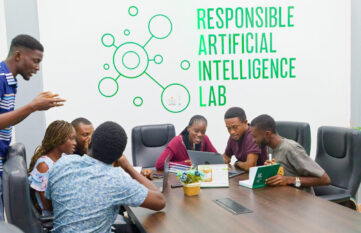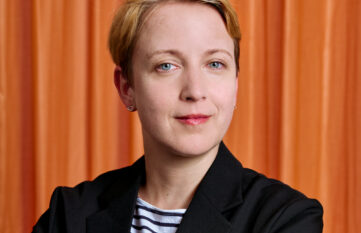On 10 and 11 October, you are hosting the International Ministerial Conference on Freedom of Religion or Belief and Artificial Intelligence at the German Federal Ministry for Economic Cooperation and Development (BMZ). Artificial intelligence and freedom of religion – how do they fit together?
They go together very well, even if one might not immediately suspect it. The digital revolution is affecting all areas of life, including religion and belief. Artificial intelligence (AI) is now being used to generate church services and devotions, and robots are being used as holy figures or Buddhist deities to teach religion.
For believers – especially in remote regions – AI-enabled applications offer improved access and communication options for practising their religion or belief. I’m thinking of virtual spaces or online databases. This is religious freedom in action. On the other hand, the use of AI also poses risks and challenges to freedom of religion or belief.
At the Hamburg Sustainability Conference on 8 October, the United Nations Development Programme (UNDP) and the BMZ, together with international partners, adopted principles for the use of AI, including on non-discrimination and the transparency of AI algorithms. Where do you see the biggest threats that AI could pose to freedom of religion or belief?
I see the greatest danger in the fact that AI-based applications are not sufficiently controlled by humans in accordance with human rights standards. Many hate messages, incitements to violence and discrimination that violate the freedom of religion and belief and other rights of many people on a daily basis could be prevented.
Another effect could be that people who have been stuck in their echo chambers due to search results that have always been tailored to their own interests would come out and engage with the diversity of the world online. The adoption of corresponding international frameworks is therefore an important step in the right direction. I look forward to hearing from the experts at the International Ministerial on Freedom of Religion or Belief about what more we can do.
The majority of people in Germany see disinformation as a serious threat to democracy. What is the role of digital technologies in spreading disinformation, and how does this affect freedom of religion or belief?
Unfortunately, digital technologies play a major role in the spread of disinformation, with negative implications on freedom of religion and belief in particular. In Pakistan, for example, there are unfortunately repeated cases of mob violence against individuals, often members of religious minorities, who are accused of desecrating the Koran or insulting the Prophet Mohammed. This then goes viral and has unfortunately also led to fatalities in the recent past.
I know of examples in other countries where false information is deliberately spread about minorities and their religious practices and traditions in order to marginalise them and make them targets of violence. That is why it is important that we also make our contribution through German development cooperation so that people in different languages and regions can recognise disinformation and media professionals can counter it with responsible journalism.
AI could promote intercultural exchange, e.g. through new virtual meeting spaces and overcoming language barriers. Where do you see the positive potential of these technologies and what significance do you attach to social media?
Artificial intelligence can play a very positive role here, as can social media. It opens up completely new possibilities, especially in terms of religious practice and participation in religious life. This is something that members of different religious communities tell me all the time. New technologies also have the potential to connect people across the globe, which can be very positive, especially for believers in the diaspora and for interreligious dialogue. On the other hand, they also have the potential to be defamatory and divisive. In the case of social media in particular, we are still too far away from governance in accordance with human rights standards, although there are first steps in this direction.
Freedom of religion or belief is coming under increasing pressure worldwide, often in conjunction with restrictions on other human rights. What is the role of international cooperation and the work of the BMZ in particular?
We can achieve a lot here through international cooperation – and we have to act. Four out of five people worldwide are already unable to practice their religion or belief freely, and the trend is unfortunately on the increase. To change this, we need to take action on several levels: We must clearly identify negative developments and shortcomings in the political dialogue with the governments of our partner countries and work together on an equal footing to find solutions.
But we also need to work consistently with human rights standards in our cooperation projects and take a close look at them. For example, we know from research that the risk of poverty is much higher for women who belong to religious minorities. We have to take this into account when selecting the regions and the activities in which we work. And we must also always ask ourselves how we can contribute to conflict reduction and dialogue between different social groups.



